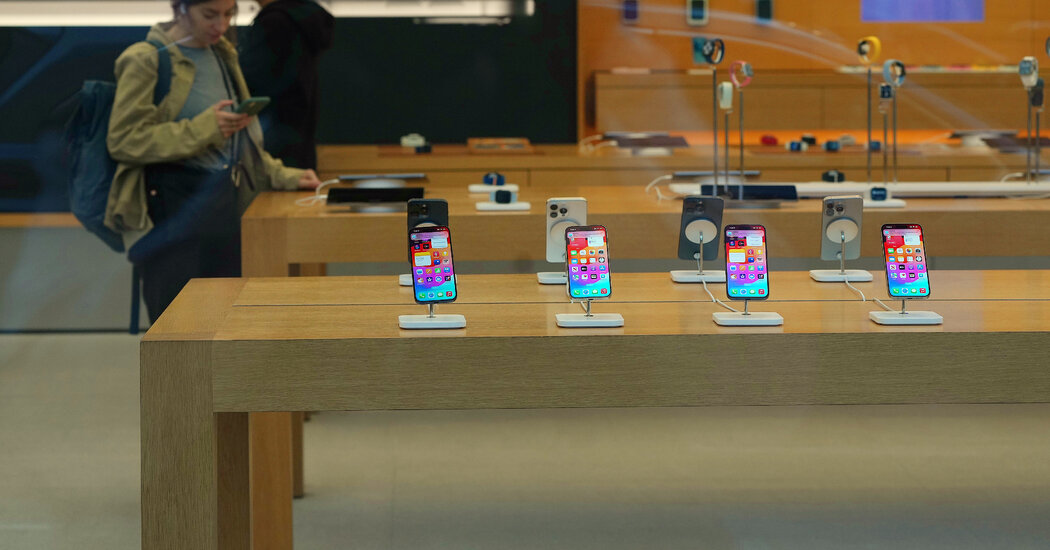The company faces pressure from governments around the world and complaints from companies that it is still too restrictive.
Governments around the world have pressured Apple with laws and lawsuits that aim to loosen its grip over the digital economy. Now, the tech giant is beginning to make concessions that could change people’s iPhone experience.
In Europe, where a new law permits third-party app stores and app promotions, Apple has approved a competing app store from Epic Games, the maker of Fortnite, and permitted the streaming app Spotify to list its summer pricing discount inside its music streaming app, Epic and Spotify said on Wednesday.
In the United States, where a Justice Department lawsuit accuses Apple of creating a smartphone monopoly, the company said on Wednesday that it would allow apps to use its contactless transaction technology, the NFC chip, to provide customers with in-store payments, hotel keys and rewards cards.
The changes are among the first examples of how Apple is opening up the iPhone. The company has spent much of the past year testing the boundaries of how far it must go to satisfy the demands of government authorities. It has introduced alternative fees, developed new processes for collecting commissions and added warnings for customers who download third-party app stores.
App developers say Apple’s changes still show that the company is more interested in protecting its business than complying with the law. Governments have responded to that criticism by intensifying their scrutiny of Apple’s business.
In June, the European Commission charged Apple with violating the 2022 Digital Markets Act, which gives regulators the authority to force tech giants to change their business practices. In May, Apple returned to federal court in California to defend its requirement that app developers pay it a 27 percent commission of sales through alternative payment systems, which developers say violates a federal judge’s order to offer other ways to pay for services.
